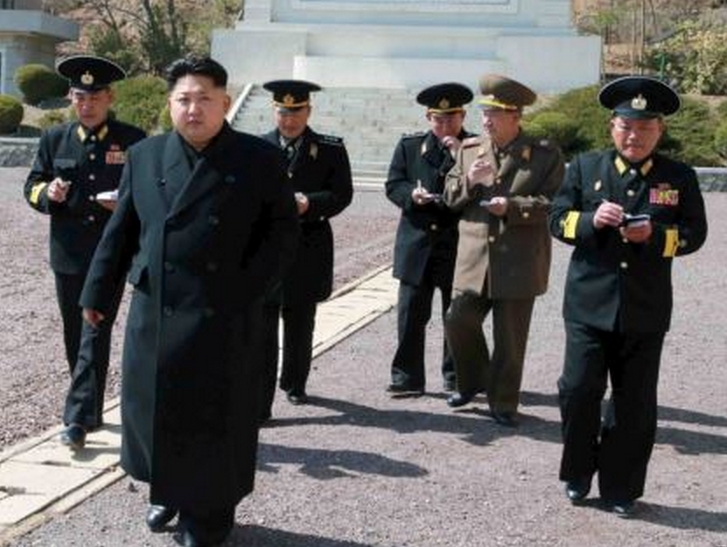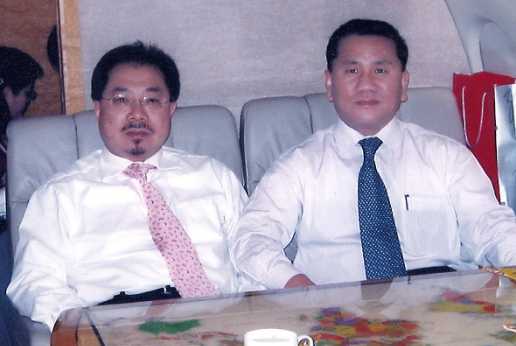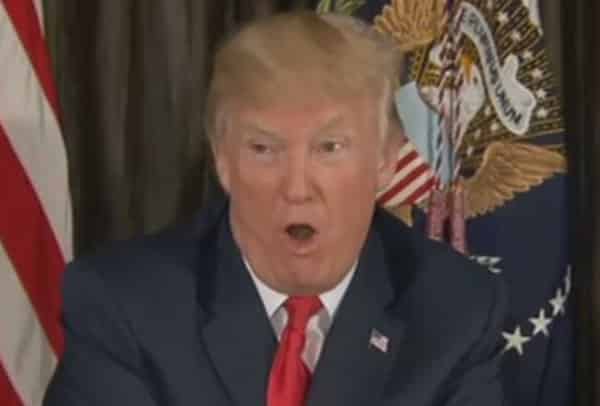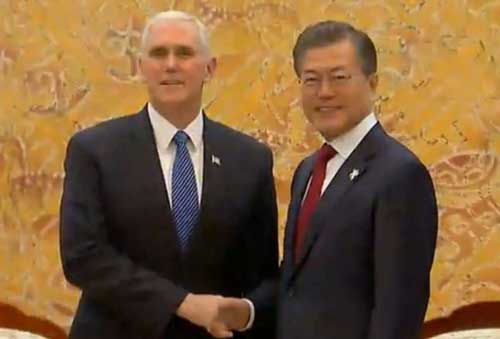One day after being ordered to do so by their government, 53,000 North Koreans didn't show up to work at the Kaesong factories on Tuesday.
It was Monday that a high-ranking pyongyang official announced that the Kaesong project was being suspended.
On Tuesday the only workers at the factory were 400 managers that were left at the complex after North Korea closed its border to the remaining managers in South Korea. Those remaining 400 managers either chose to stay at the complex or didn’t have transportation back across the border.
|
|
Saying that the smaller factories at the complex face bankrupcy because of the work stoppage, the head of the factory owners association wants to send a delegation to Pyongyang to discuss the fate of the complex factories.
Also on Tuesday, Pyongyang ramped its hostile rhetoric up a notch higher. It was announced on state-run television that foreigners in South Korea should consider taking shelter or leaving that country because they did not wish to harm any of them in the event of the start of hostilities. On TV, it was said by announcers, “once a war is ignited on the peninsula, it will be an all-out war, that is a merciless sacred retaliatory war to be waged” by North Korea which “does not want to see foreigners in South Korea fall victim to the war.”
This was a further escalation of the warning that was sent to foreign diplomats in North Korea earlier telling them that they should consider leaving North Korea because of the coming hostilities that may arise.
South Korea says that there are indications that a medium or long-range missile launch may come in the next day or two. They have based there assumptions on increased activities near the Punggye-ri site.
They cannot confirm their suspicions however.
In Washington Admiral Sam Locklear, the commander of the U.S. Pacific Command spoke before the Senate Armed Services Committee, where he told those in attendance, “A major conflict in Korea could have unpredictable, long term, and far reaching impacts due to the central location of the Korean peninsula in Northeast Asia and the vital importance of Northeast Asian trade to the global economy.”
General James Thurman was to testify before that committee, but elected to stay on the Korean Peninsula in light of the increased tensions there.
Even though the rhetoric is escalating, there are no signs that South Koreans are taking heed of what is being issued from the north. U.S. and world officials on the peninsula are staying put and tourists have seemed to all but ignore North Korea’s recent stream of fiery statements.






